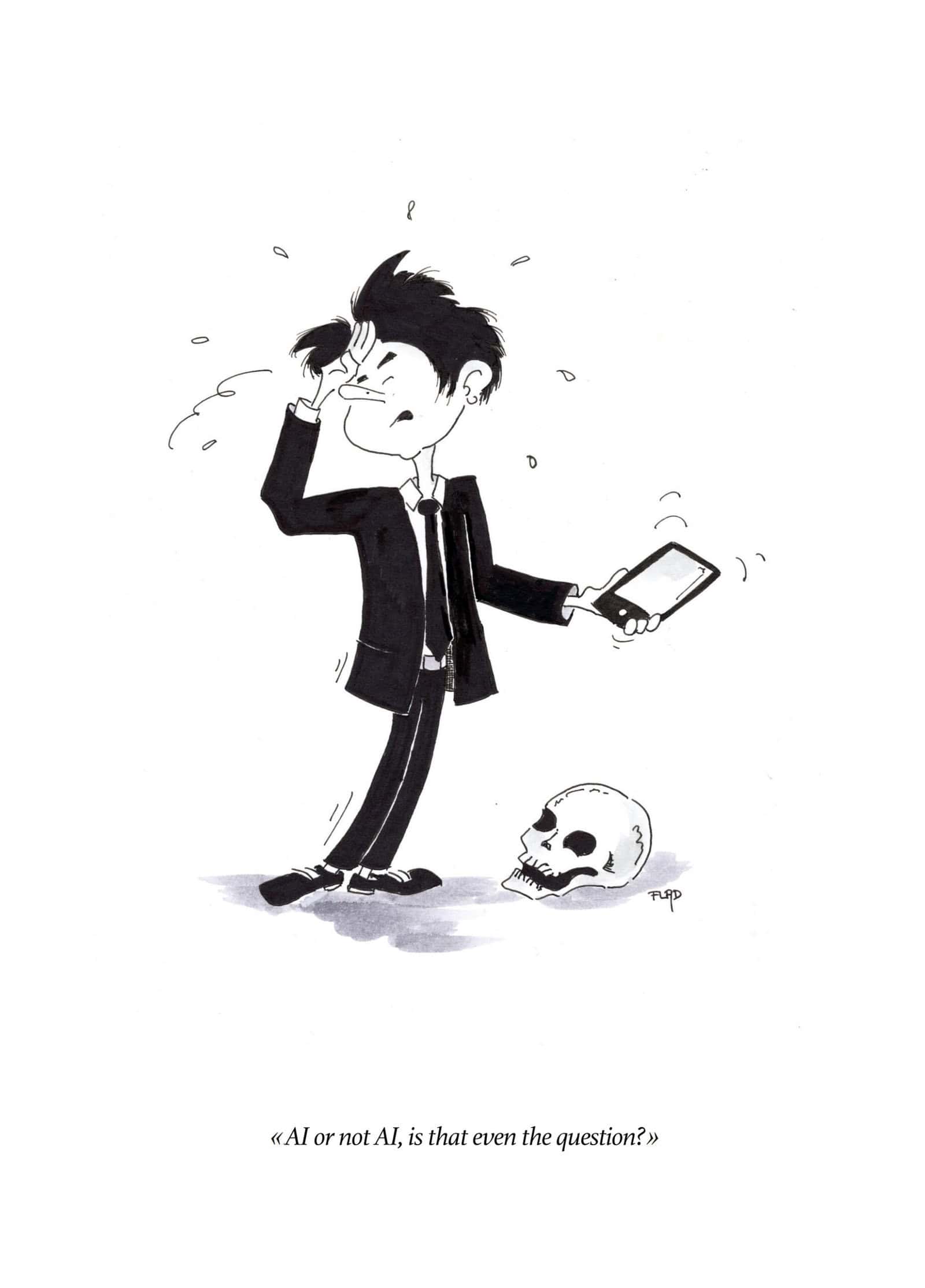“It’s not AI that is going to take your job, but someone who knows how to use AI might”. These were the wise words of Richard Baldwin, professor of international economics at the IMD Business School.
He made them over well a year ago, and in that time, the line has almost become the industry’s go-to AI cliché. Go to any AI or industry conference and count how often you hear it. My best is that at least three speakers will use the line (if not more).
We need to understand both opportunity and threat and a clear warning to get moving.
Sure, everyone in adland is talking about AI. For 18 months, it has been the new shiny toy, but the time for talking is well and truly over. It is now time for action.
Yet it appears much of what we are doing as an industry is still just talk.
From a pitch perspective, agencies readily discuss AI and its benefits. But they mostly discuss generative AI and its ability to impact production. Often, though, these points are in the abstract. The tangible proof points at this stage are few and far between.
Nevertheless, it is the topic of the moment, raising more questions and concerns and demonstrating that the hype is in full bloom.
If you are already sick of hearing, seeing, and reading about AI, the bad news is that we are still in the Garner Hype Cycle ‘Peak of Inflated Expectations’, and there is a long way to go before we reach the ‘Plateau of Productivity’, where AI is fully integrated into our lives.
But if it is not time to simply be talking up AI, what should we be doing?
There are multiple layers of consideration here. But let’s start on a professional level in terms of your career.

By Dennis Flad
Personal opportunity
Why personal? Because the quote above is fact. AI will not take your job, but someone who knows how to use it will. Do not wait for your employer to trial or implement AI in the workplace, get out there and use it for yourself. There are plenty of apps and sources of where to start and which ones to use.
Harvard Business School research found that in a randomised experiment, consultants using the generative AI tool ChatGPT-4 finished 12% more tasks, completed them 25% faster, and achieved results that were 40% higher quality, on average, than those who did not use the tool.
If that is not a reason to start learning how to use AI, then what will it take?
Business opportunity
Agencies need to stop talking about AI in the abstract and identify the opportunities within their business to generate tangible business outcomes. This will help differentiate them, but streamlining backend processes to reduce overheads will also cut operating costs and improve the bottom line.
Meanwhile, agencies have been under pressure to generate more for less, with TrinityP3’s own, along with Farmer & Co., research showing that since 2004 and 2019, brand outputs in scopes of work have increased more than ten-fold, while fees have often failed to keep pace with inflation, let alone this exponential increase in workload.
However, agencies also need to accelerate the transition to output-based fee models, away from the time and labour cost model. Prior to the implementation of AI, this was harder, but the realisation of the associated efficiencies that can come from AI will allow them to protect their topline and provide demonstrable value improvements to their clients.
Industry opportunity
For an industry that spends so much time discussing the importance of creativity, we should join the other creative industries in the discussion on the role of intellectual property in an AI future. Creatives, be they authors and publishers, screenwriters and actors, artists and agents, are all questioning the wholesale blundering of their intellectual property by technology companies as they develop their generative AI.
This is an opportunity for the advertising industry to align itself with the rest of the creative industries that are under attack.
For marketers, this is an opportunity to define an ethical framework for using AI to protect relationships with customers and their brands.
Government opportunity
You may be surprised that the Australian government has already published AI Ethical Principles and a Framework. I know I was. The Department of Industry, Science and Resources has provided these voluntary principles to ensure AI is safe, secure, and reliable.
But as we have seen with social media and technology platforms, while the government is already in a battle to play catch-up now, it is unlikely they will make the same mistake twice. We could see these voluntary frameworks rapidly become legislative frameworks if businesses do not take ethical considerations seriously. So, I encourage all business leaders to acquaint themselves with the principles.
On one level, I find comfort in the fact that we have been here before. The internet entered our lives some 30 (or so) years ago and rapidly changed our world.
The difference with AI is the speed with which it is changing our world — many AI products return up to a 10x improvement in productivity. And I think the 10x factor also applies to the speed with which AI now impacts us. ChatGPT was launched to the world in November 2022, and in those 18 or so months, it has already made a marked difference on all levels of commerce and our wider society.
Each of us needs to avoid what many media businesses did when the digital revolution arrived: attempt to fight against the changing tide. Instead, we need to arm ourselves with the knowledge and skills to capitalise on the opportunities the AI revolution can give us on a professional, business, industry, and governmental/societal level.
See also: Woolley Marketing: Young Guns vs the Old Guard?
–
Darren Woolley is Global CEO of TrinityP3, Australia’s largest and most influential independent marketing / pitch consultancy and is well known to the advertising industry. Founded more than 20 years ago TrinityP3 has a significant presence in Australia where it leads the pitch process for many of the country’s leading advertising accounts as well as having offices in London, New York and Zurich.
 Darren Woolley
Darren Woolley
Dennis Flad is responsible for Trinity P3 EMEA and founder of t’charta, a management consultancy boutique for strategic product management, pricing and go-to-market based in Zurich, Switzerland. Dennis worked his entire life in marketing and advertising, which allows him to infuse his whimsical drawings with a realistic understanding of management practices and behaviours.
 Dennis Flad
Dennis Flad

